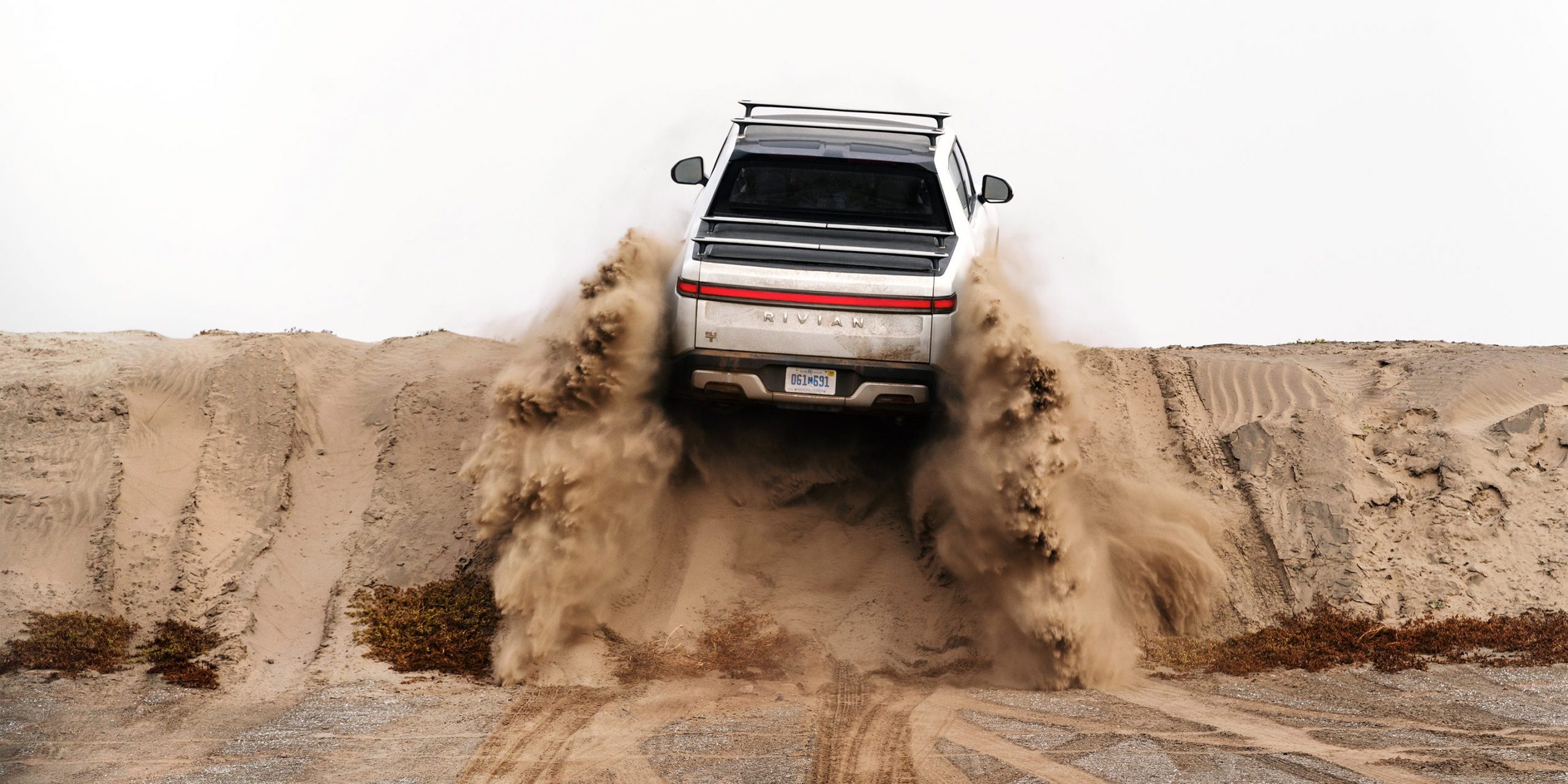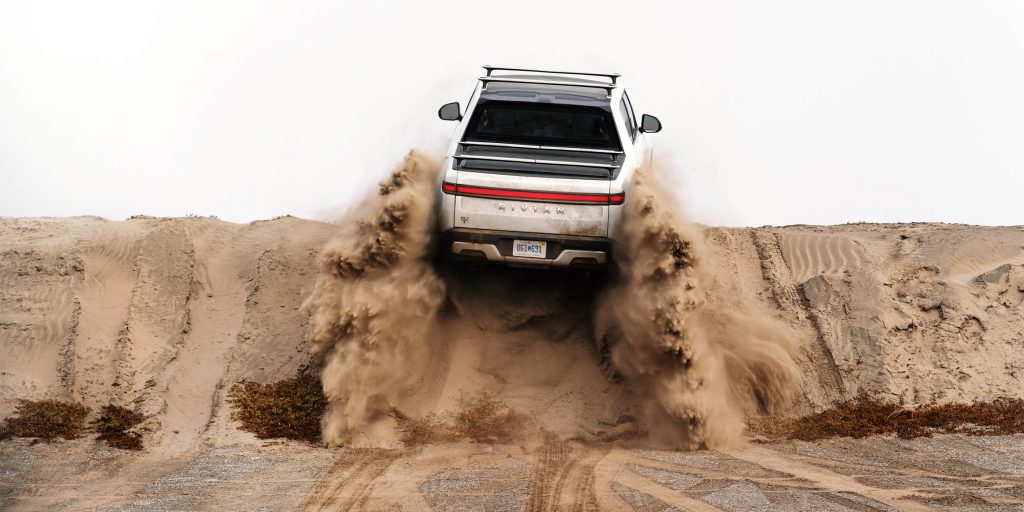
- Retail traders have bought $378 million of shares in Rivian, Ford, and Lucid in the past week.
- Tesla rival Rivian went public last week and has since doubled in value to about $150 billion.
- Tesla CEO Elon Musk has sold about $8 billion worth of shares causing the stock to slump.
Retail traders are pouring into other electric vehicle stocks besides Tesla amid Elon Musk's multibillion-dollar share sale.
The retail crowd has purchased $378 million worth of shares in Rivian, Ford, and Lucid, in the past week — surpassing demand for Tesla — according to Bloomberg, which cited Vanda Research data.
Fidelity data shows Lucid and recently public Rivian were the top two purchased stocks among customers Tuesday. Tesla was the third, though its sell orders outnumber buys. Ford and blank-check company Gores Guggenheim, which is set to merge with EV maker Polestar, were also among the top 30 stock orders.
EV stocks have long caught the attention of retail traders, and several of them have gone public with a blank-check vehicle known as a SPAC — a move that further attracts the retail crowd.
Lately, though, Tesla has been caught up in controversy over Musk's $8 billion share sale and calls from the United Nations for billionaires to help end a global hunger crisis. The stock has dropped 15% since Nov. 4. Still, it has gained about 50% year-to-date.
Rivian, which went public last week at $78 per share, has scored a nearly $150 billion market capitalization and a spot as the No. 2 most valuable US auto maker after Tesla. In response to his competitor's high-flying IPO, Musk tweeted the "true test" for Rivian would be whether it can "achieve high production and breakeven cash flow."
Lucid, for its part, has also caught retail-trader attention. It went public in a blank-check merger just four months ago and has since soared past legacy automaker Ford with a market valuation of about $87 billion. It's still a far cry from Tesla's approximate $1 trillion valuation, though.
Ford, meanwhile, has been ramping up its EV production with new factories and now expects up to half of its global vehicle production to be EVs by 2030.

